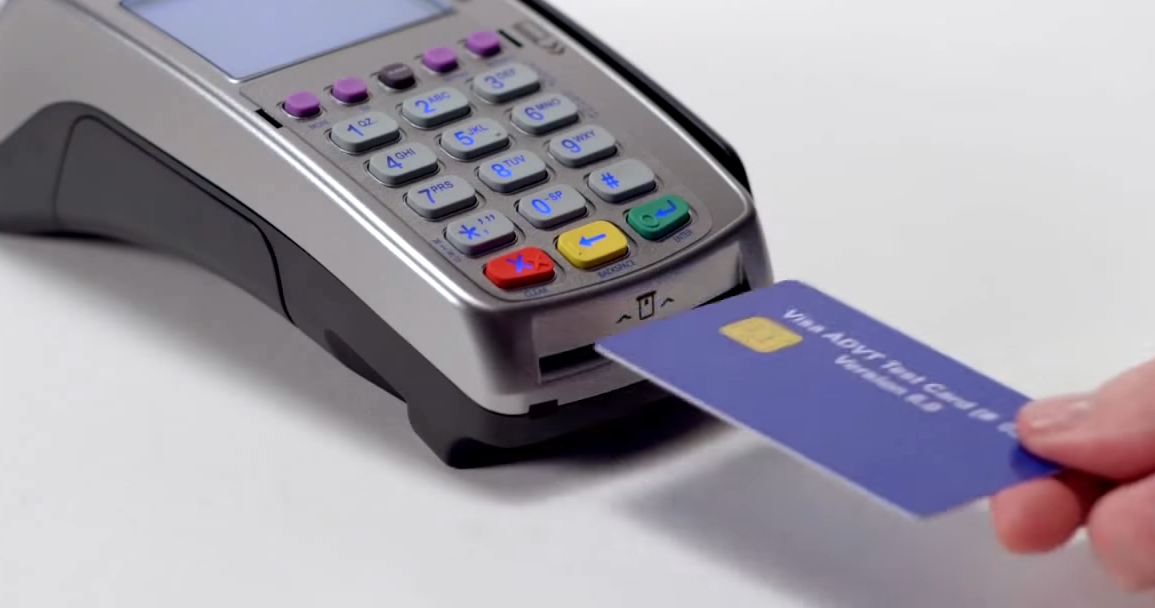Any business that wants to accept credit cards as payment needs a credit card processor. The processor opens up the channel of communication between the merchant’s store and the client’s bank. It allows the payment to move from one end to the other. Read on as we explain what is a credit card processor and how to choose one.
What Is a Credit Card Processor?
When a credit card is swiped at a store or entered online for payment, the processor receives the cardholder’s information and the transaction details. The credit card processor then relays the information to the card network (e.g. Visa or MasterCard). The network requests authorization from the issuing bank (the bank the credit card belongs to, e.g. Chase or Bank of America). In turn, the bank makes sure the customer is in good standing and has enough credit to cover the charge. Then the bank sends the authorization (or decline) back through the network to the credit card processor, and on to the in-store or web payment terminal. All of this takes a matter of seconds. Credit card processors give merchants access to this transaction channel – for a price.
What Are Credit Card Processors Fees? – Credit Card Processors: What They Are and How to Choose One
There are two main types of fees associated with credit card processing: transactional fees (per transaction) and flat fees (monthly fees for access and usage).
Transactional fees are what the merchant pays each time it accepts a credit card as payment. These are interchange fees. They are used to pay the issuing bank and the acquiring bank for taking on the risk of the credit transaction. Typically, these charges consist of a percentage of the transaction amount plus a flat per-transaction fee. Card networks publish their interchange fees online, so merchants can see what they’ll pay for accepting that type of card. The percentage varies based on the type of card (e.g. credit, debit, rewards), the type of transaction (e.g. in-store or online) and the amount of the transaction. In addition, the credit card processor will charge its own fee on top of this. Merchants must consider the amount of the additional fee when choosing a processor.
Flat fees are charges merchants must pay every month. These include charges like terminal fees for the lease of a credit card scanner for the store, monthly minimum fees, statement fees and more. Some of these fees vary by credit card processor, so it is important to shop around.
What to Consider When Choosing a Credit Card Processor
There are hundreds of credit card processors in business, which merchants may find overwhelming. These are some key things to consider when comparing the companies.
1. Pricing structure: How does the company charge?
The four main pricing models are interchange plus, subscription, tiered and blended.
Interchange plus models are the most transparent for the merchant, because the paperwork lists all prices and markups, making it is easy to see where the charges are coming from. Here, the processor charges a markup percentage and fee on top of the published card network interchange fees.
Subscription models are similar to interchange plus models, but they only charge flat transaction fees instead of a fee based on a percentage of the transaction. There is also a monthly membership fee.
Tiered models group credit card charges into qualified, mid-qualified, and non-qualified categories. The charges are divided depending on whether the processor’s criteria for the charges are met. Qualified charges pay the lowest percentage fees, but have the strictest requirements (e.g. card-swipe in store and batch settlement the same day).
Blended models charge all transactions the same percentage and transaction fee. This often ends up being costlier than models that vary per card network.
2. Extra charges: What flat fees do they charge and what are the costs?
Some flat fees are non-negotiable, but some deserve a second look. Annual fees, for example, can vary greatly between credit card processors. Some don’t charge an annual fee at all. There are monthly minimum fees when the merchant does not meet a certain transaction total in the month or year. Merchants should compare monthly minimum totals across credit card processors. Buying a credit card terminal outright eliminates terminal leasing fees. While it will be a pricey payment, it is a one-time fee, which saves the merchant thousands of dollars in leasing fees in the long run. Merchants should also look out for set-up fees, gateway access fees, statement fees and early termination fees.
3. Payment methods: How can customers pay?
Effective credit card processors should be able to accept all forms of credit, including Visa, MasterCard, American Express and Discover. Merchants should also consider whether they want to be able to accept gift cards and prepaid cards. Digital wallets, like Apple Pay and Google Wallet, are becoming increasingly common, meaning a credit card processor that can accept these payments is something to take into account.
4. Reliability: What is the processing company’s reputation?
With hundreds of credit card processors out there, there are bound to be standouts and duds. While doing research, the merchant should consider how long the processing company will take to set up the account, how available it will be for service and support and the company’s BBB ranking. All providers should adhere to PCI (Payment Card Industry) standards, for both financial safety and to ensure the merchant’s business isn’t hit with a fee. Online payment providers should have SSL encryption to keep credit card details safe.
The Bottom Line
Choosing a credit card processor is a major decision for a business owner. It is, however, necessary if the merchant would like to accept credit cards as payment. By doing research, shopping around, and making sure to understand all of the fees, a business owner can ultimately find the best credit card processor for them.
DANIELLE KLIMASHOUSKY
Danielle Klimashousky is a freelance writer who covers a variety of personal finance topics for SmartAsset. She is an expert on topics including credit cards and home buying. Danielle has a BA in English from Wesleyan University.
Article courtesy, SmartAsset.com © 2019 SmartAsset, all rights reserved.




